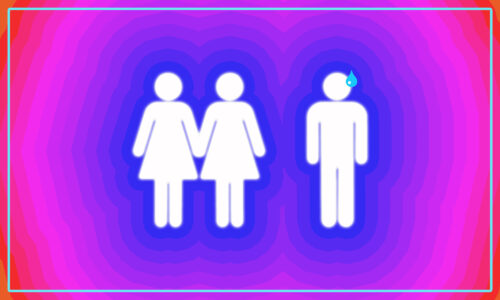China’s state broadcaster isn’t keen on cleavage
CCTV is determined to police the way entertainers dress. The latest example: the digital alteration of a promotional photo of an actress that showed just a hint of cleavage.

Media regulators in China have long been uncomfortable with women expressing their sexuality or showing their bodies for artistic reasons. The latest case of censor prudishness was the digital alteration of a small space between a woman’s breasts that was almost unnoticeable but was deemed objectionable anyway.
Earlier this week, ahead of its annual gala show to celebrate the Dragon Boat Festival, China Central Television (CCTV), the Chinese state broadcaster, unveiled a series of posters featuring celebrities slated to appear on the program. One of them is Jǐng Tián 景甜, an award-winning Chinese actress, who wore a mint-colored ruffled gown in the photos.
Jing’s poster is nothing out of the ordinary, but some eagle-eyed internet users were quick to notice that her dress in CCTV’s photo looked different from the one that she had shared from the photoshoot (in Chinese). The original gown has a tiny “boob window” that shows a bit of the actress’ breasts, but in CCTV’s version, the gap is covered in an exquisite digital editing job.
Predictably, the bosom block quickly became the talk of social media, where reactions verged from the amused to the outraged. “You can tell that CCTV really holds itself to high standards. This editing work is flawless,” a Weibo user commented (in Chinese). Echoing a similar sentiment, some pointed out that because the gala was supposed to be family-friendly and inoffensive enough for everyone to enjoy, CCTV had a reason to make the gown more “suitable for broadcast.” “CCTV is like your old father, who can be annoying sometimes for having too many opinions about your clothing choices. But after all, he’s looking out for you and wants nothing but good things for you,” another one remarked (in Chinese).
China news, weekly.
Sign up for The China Project’s weekly newsletter, our free roundup of the most important China stories.
On the other end of the debate, commenters accused CCTV of overreacting to an article of clothing that they considered to be “perfectly appropriate” for the occasion. “Whatever the reason, if CCTV wanted to stop people gawking at Jing Tian’s boobs, then their efforts have backfired in a big way. I wonder how Jing feels about her breasts becoming a heavily discussed topic on the internet,” one person wrote (in Chinese).
Many critics cited a famous quote from Lǔ Xùn 鲁迅, a towering figure of Chinese modern literature, to condemn the exaggerated expectations of female chastity in Chinese society and the prevalent policing of women’s bodies in the media. The quote reads, “The sight of women’s short sleeves at once makes them think of bare arms, of the naked body, the genitals, copulation, promiscuity, and bastards. This is the sole respect in which the Chinese have a lively imagination.”
It’s not news that cleavage is too hot for China’s vast censorship apparatus to handle. Back in 2015, The Empress of China 武媚娘, a blockbuster TV show about Tang dynasty emperor Wǔ Zétiān 武则天, was abruptly taken off the air one week after its debut on satellite station Hunan TV, ostensibly for “technical reasons.” When re-cut episodes returned to TV, shots of female characters in mildly revealing period dresses were not-so-subtly cropped above the chest area to remove any sight of the bulge of a breast.
Instead of implementing an age-based rating system, Chinese media regulators are stubborn about censoring content based on a long, sometimes arbitrary blacklist. Over the years, a string of foreign shows and movies have come under the ax of Chinese censorship and learned that depictions of nudity are out of the question in the country. Among the relatively new additions to the list are tattoos and men’s earrings.






